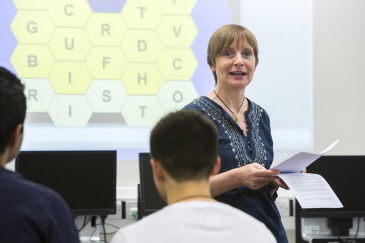Academics from the University of Bristol will work with schools in the region to build on existing knowledge of how games, including video games, engage the brain’s reward system.
It’s one of six new projects funded by the Wellcome Trust and the Education Endowment Foundation (EEF) to investigate a variety of ways neuroscience might improve teaching and learning in the UK.
Teachers often encourage their students by giving rewards, such as gold stars, in return for good answers. In this project, however, the rewards for good answers are decided by chance.
Dr Paul Howard-Jones, from the Graduate School of Education at the University of Bristol, is leading a team of researchers at Bristol and Manchester Metropolitan University to develop this idea for the classroom.
He said: “Previous research has shown that not knowing whether a reward will materialise can add to the excitement and motivation around learning. We’re gaining a better understanding of how uncertainty can increase the rate at which we learn, thanks to new insights that have arisen from neuroscience. We’re really looking forward to working with teachers to develop a novel game-based approach to whole-class teaching that applies these insights.”
Working with students in Year 8 science lessons, classes will collaborate in teams to accumulate points by answering questions, with the option of doubling or losing points for correct answers on the spin of a wheel of fortune.
Free web-based technology will be used to connect the class up and allow all students to participate at once. The technology will also randomly select teams for special challenges, and provide occasional pay-outs of points based purely on luck.
Researchers are initially looking to recruit six schools in the South West to take part in the first stage of the project, starting in January 2015, to help develop the gaming experience. The project will then be rolled out more widely to include 35 schools in the area.
Researchers are especially keen to work with schools who have an above-average intake of disadvantaged students.
Further information is available from the Centre for Mind and Brain in Educational and Social Contexts (Mbesc) website.
